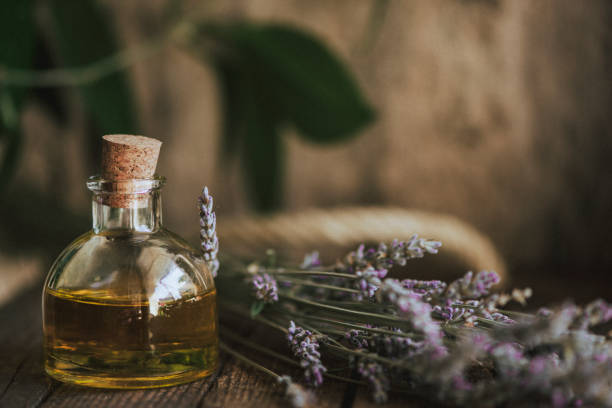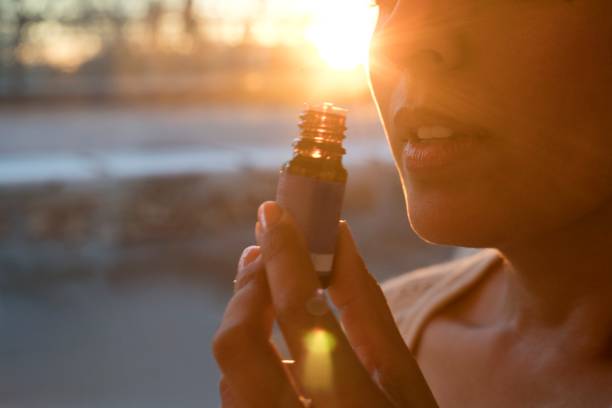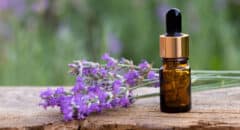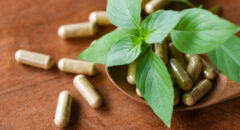
Want to reduce your daily anxiety, naturally? We already know that green tea can reduce anxiety, but here are some other remedies that are less known but also effective.
Natural remedies for anxiety
Next time you're feeling anxious, try these natural remedies for relief:
1. Exercise

Not only is exercising good for burning off anxious energy, it's also great for stressful circumstances that may cause anxiety such as quitting smoking. Additionally, exercise is considered a cure-all as it's also good for physical, emotional and mental health. The Anxiety and Depression Association of America notes that regular exercise can have a lasting impact on your wellbeing, and just one vigorous session can help alleviate anxiety symptoms for hours. Those with a generalized anxiety disorder can have their symptoms reduced by exercising.
READ: Yoga Poses To Ease Back Pain
2. Meditation

If your mind often races with negative thoughts, getting in a meditative state will help slow down your thoughts and make it easier to manage your stress and anxiety. There are a wide range of mediation styles to choose from. You may even benefit from mediating while doing yoga. A 2010 meta-analytic review shares that doing mindfulness-based mediation can help people with mood and anxiety disorders. Doing mediation, yoga, tai chi, etc. for just 5 to 10 minutes a day can make a difference. Just beware of hot yoga, which doctors note can trigger your anxiety.
3. Relax

When you get anxious, you may unconsciously tense your muscles or clench your jaw. To combat this, try lying in a comfortable position and slowly relax each muscle group. Begin with your toes and work your way up to your shoulders and jaws.
4. Writing

If you are dealing with anxiety, you just need a more healthy outlet to express it. Next time your feeling anxious, try journaling or other forms of writing to get your thoughts on paper. A 2016 study showed that creative writing helps children and teens manage their anxiety.
5. Time management

A lot of people tend to feel more anxious when they have a lot on their plate. If family, work, and health-related activities are causing you stress, consider putting a plan in place to reduce anxiety. One surefire way to do this is by using tools such as book-based planners and online calendars. Many people find that breaking their commitments and projects into steps makes it easier to accomplish the tasks with less stress.
READ: Use These 5 Essential Oils For Better Health!
6. Aromatherapy

Smelling soothing plant oils, such as lavender, can help to ease stress and anxiety. A 2012 study found that aromatherapy also reduces the heart rate in the short term, which helps ease
sleep issues in the long term. Certain scents work better for some people than others, so it's best to experiment to find the best one for you.
7. Herbal teas

Drinking herbal tea regularly helps with anxiety and sleep disorder problems. In fact, some teas such as chamomile can alter levels of cortisol, a stress hormone.
8. Herbal medicine
Studies show that rhodiola rosea can help reduce the symptoms of generalized anxiety disorder, such as stress and fatigue. It can be taken as a tincture, but most opt for capsules or tablets. Be advised, however, that rhodiola rosea can have effects that may make you even more anxious.
READ: 5 Alternative Strategies For Headache Relief
9. Animals

There's a reason many people get support pets. Pets offer companionship, love, and support. Research published in 2018 confirms that pets can be beneficial to people with a variety of mental health issues, including anxiety. Furthermore, grooming and spending time with horses can also alleviate the effects of stress and anxiety. If you have allergies, crickets may help. Although it sounds weird, a 2015 study found that crickets could improve psychological health in older people.
READ: 8 Natural Remedies For Anxiety Disorder
10. Vitamin B-12 and Omega-3

If you suffer from anxiety, it may be due to low levels of Vitamin D and B-12, which can be taken through supplements. If you are looking to take supplements, it is best to be on the safe side and consult with your doctor because they aren't FDA regulated like other drugs.Omega-3 polyunsaturated fatty acid is also proven to help alleviate anxiety symptoms. Try eating foods that are rich in vitamin B-12 and omega-3, such as salmon, dark green vegetables, beans, oatmeal, and nuts.
11. Sleep

Research shows that a lack of sleep makes us sensitive to anxiety. Brain regions that help us regulate emotions also keep us less anxious and calmer. If sleep is missed, those regions become very sensitive. If you have trouble sleeping, try chamomile, passionflower, lemon balm, and magnesium glyconate.









